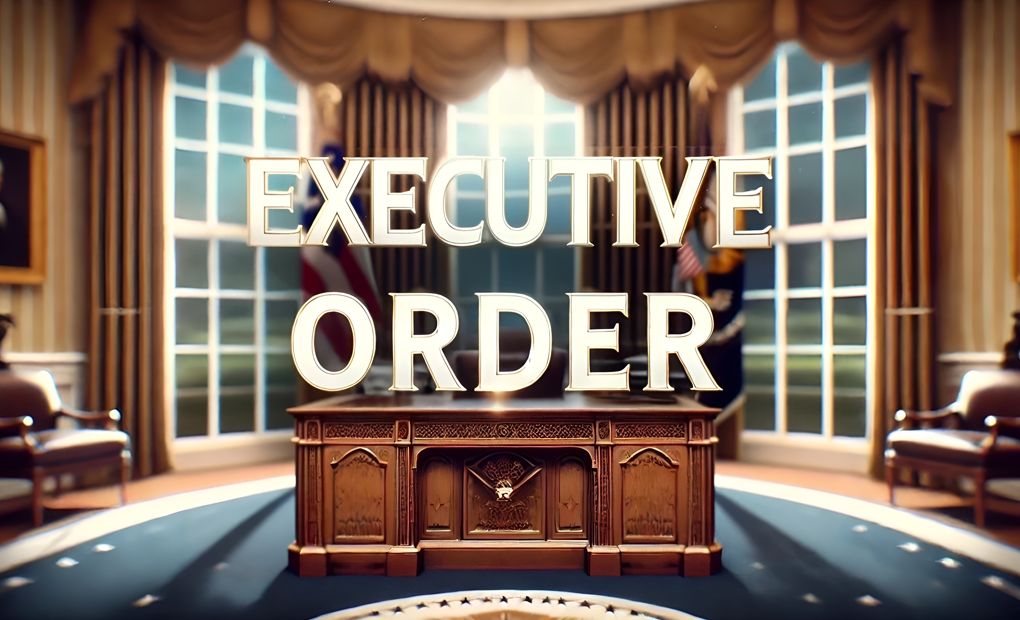Ph: 404.844.4130
Fax: 404.844.4135
3212 Northlake Pkwy #450906
Atlanta, GA 31145

Donald Trump began his second term as President, issuing a number of sweeping Executive Orders, two of which dramatically change the landscape of employment discrimination law as relates to federal government employees and contractors. These orders reduced the scope of protections afforded to these employees/contractors and knocked out decades of civil rights precedent promoting diversity and inclusion. Importantly, these Executive Orders may provide signs of the new Administration’s future action and policy directed at employees of private employers.
Ending Illegal Discrimination and Restoring Merit-Based Opportunity
First, on January 21, 2025, President Trump issued a sweeping executive order (“EO”), entitled “Ending Illegal Discrimination and Restoring Merit-Based Opportunity.” The EO rescinded a number of prior executive actions dating back to 1965 relating to equal employment opportunity and affirmative action based on race and sex in federal employment and government contracting activities.
The Executive Order directs the Office of Federal Contract Compliance Programs (OFCCP) to cease promoting diversity or requiring contractors to engage in workforce balancing based on race, color, sex, sexual preference, religion, or national origin and to take “affirmative action” to ensure such workplace balancing. The EO also instructs agency heads to take certain actions and makes various recommendations focused on eliminating what it calls, “illegal discrimination and preferences in employment, including diversity, equity, and inclusion (DEI) programs.”
The EO revokes Executive Order 11246, Equal Employment Opportunity, as amended by Executive Order 13672. Those previous executive orders impacted federal contractors by among other things:
In addition to dismantling certain compliance programs for federal government contractors, the EO reiterates existing law that prohibits “illegal private-sector DEI preferences, mandates, policies, programs, and activities” that establish preferences for persons of some races and genders over others in violation of Title VII and related requirements. Section 4 of the January 21 E.O. has the heading: “Encouraging the Private Sector to End Illegal DEI Discrimination and Preferences.” This section empowers the “heads of all agencies, with the assistance of the attorney general” to take “all appropriate action . . . to advance in the private sector” the elimination of “illegal” DEI initiatives.
Although the details of what constitutes a DEI program, or more especially an “illegal DEI program” are largely undefined, the EO broadly paints all DEI policies as part of an “unlawful, corrosive, and pernicious identity-based spoils system.” It clearly states that the government will begin bringing enforcement actions against employers with DEI programs that the government believes establish preferences or affirmative action requirements in violation of Title VII. Indeed, the Attorney General is required to identify “the most egregious and discriminatory DEI practitioners” and establish a “plan of specific steps or measures to deter DEI programs or principles that constitute illegal discrimination.”
Defending Women from Gender Ideology and Extremism and Restoring Biological Truth to the Federal Government
In addition, on the first day of Donald Trump’s second term, he also used his executive power to remove protections for LGBTQ+ people, including a declaration that the federal government would not recognize trans and nonbinary people. This EO, titled, “Defending Women from Gender Ideology and Extremism and Restoring Biological Truth to the Federal Government,” establishes a federal policy of recognizing two unalterable birth sexes (male or female) and instructs agencies to enforce federal laws in a manner consistent with this policy.
The Executive Orders issued last week are focused primarily on the operations of the federal government and its agencies. However, some contain policy statements, directives, and enforcement priorities that are expressly directed at DEI efforts in the private sector. Indeed, the “Defending Women from Gender Ideology” EO contains directives that clearly are intended to impact the private sector. For example, the order:
Looking Forward
The authority to issue executive orders falls under Article Two of the U.S. Constitution, which provides that the presidents’ executive orders cannot contradict the Constitution or federal statute. Stated another way, an executive order can’t just erase a federal statute, or state law, and it can’t change how courts have interpreted the federal statutes. That means government employers and contractors must continue to comply with equal employment and non-discrimination requirements that apply to all employers in the United States, including Title VII. So, government contractors and federal government agencies still cannot discriminate against employees or applicants “because of such individual’s race, color, religion, sex, or national origin.”
Although Title VII does not reference gender identity or sexual orientation, the Supreme Court held in 2020 in Bostock v. Clayton County, Georgia that Title VII prohibits discrimination in employment on the basis of gender identity or sexual orientation because discrimination based on those factors is sex discrimination as prohibited by Title VII and the Equal Protection Clause of the U.S. Constitution. After the Supreme Court’s decision in Bostock, then President Joe Biden directed federal agencies to apply the Supreme Court’s ruling in Bostock to all laws that prohibit sex discrimination, not just Title VII.
If you have any questions about the impact of these executive orders on you or your company, feel free to contact our attorneys, Jay Rollins or Debra Schwartz by calling 404.844.4130.
